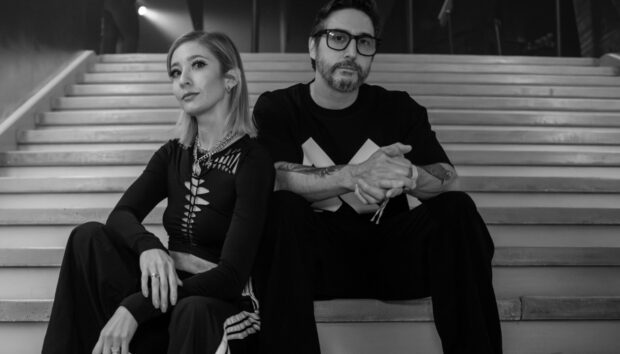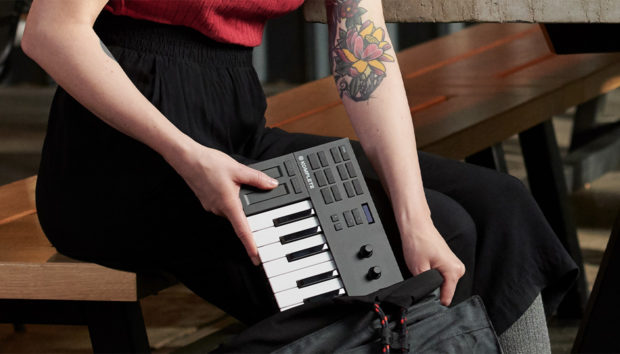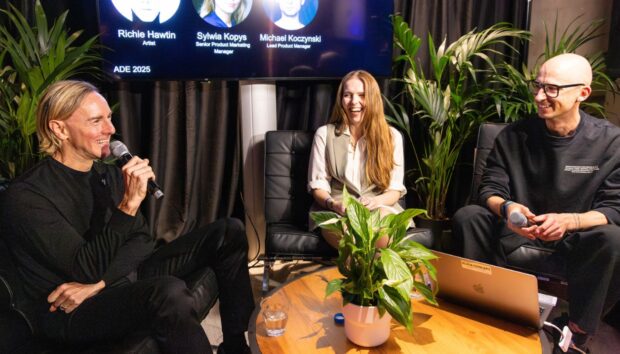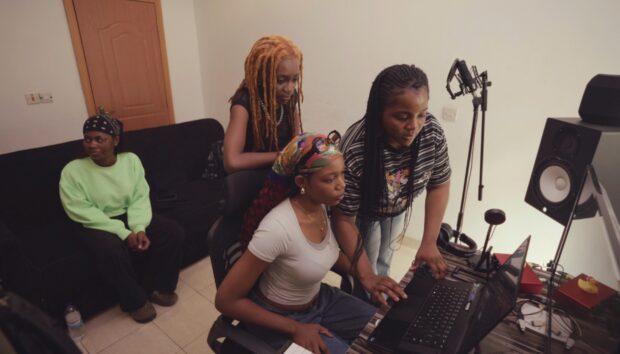Mute Records’ Daniel Miller on how to sign a record deal
With 45 years’ experience, there are few industry figures with more knowledge of signing a record deal than Daniel Miller, label boss of the legendary Mute Records. Daniel shares his insights into the burning question of how to sign a record deal and provide guidance on some of the red flags to watch out for.
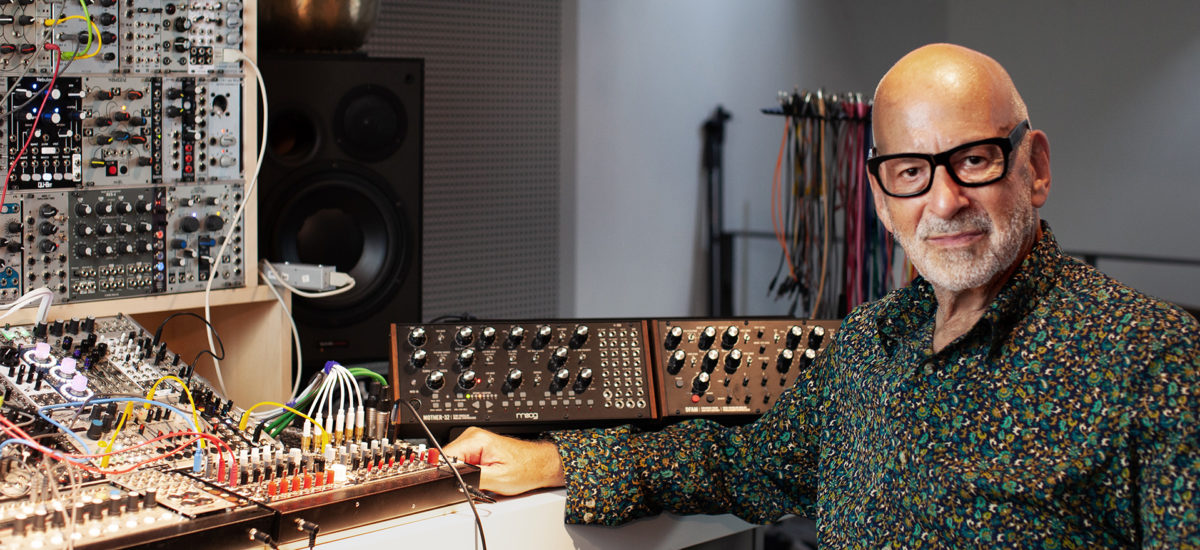
How do record deals work and how can you sign one without selling your soul? These are the questions that almost every aspiring singer/songwriter has grappled with for generations.
Launched in 1978 to promote his debut single Warm Leatherette (The Normal), Daniel Miller is the founder of London’s Mute Records. His first signing was avant-garde electronic musician Fad Gadget, swiftly followed by synth pop legends Depeche Mode, Yazoo and Erasure. The label would later go on to sign Moby, Nick Cave and the Bad Seeds and Goldfrapp, amongst many others.
Initially a one-man operation, Mute has expanded into a global group of companies and, today, Miller is busier than ever. However, since the advent of the internet and digital recording, there has been a transformation in how record labels operate, as has their approach to signing new artists.
Thankfully, Miller is here to share his insights into the burning question of how to sign a record deal and provide guidance on some of the red flags to watch out for.
How did Mute Records set about signing artists in the late 1970s?
In the first era of Mute we didn’t do record deals at all because I didn’t want people to feel contractually tied to the label if they weren’t happy. We did 50/50 profit share deals and still do those today. They’re not always the best deal for artists—it depends on their level of sales, but I wanted Mute to be a label that I’d like to be on as an artist myself, so I tried to make our record deals as fair as possible.
Mute artists appear to have a commitment to the label that’s rarely found elsewhere. What do you put that down to?
I guess you’d have to ask them about why they stay with us, but I think they’d say that Mute feels like a good creative home to work in. I’ve worked with many artists for a very long time and I personally enjoy watching their development over the years and playing a part in that. I give them lots of advice but the final decision is always theirs, and that’s still the philosophy.
With the industry being quite cash strapped these days, do labels send A&R to see live bands as much as they used to?
A lot of labels, especially the majors who have huge catalogues, are not cash strapped and are going through a big phase of positive cash flows, but it’s a good question because a lot of the artists we’ve signed recently were not based on live performance. When we do sign artists to record deals, their ability to play live is not a deciding factor but it’s still an important one because it’s to everybody’s benefit that they can promote their careers by playing live.
How should aspiring artists approach signing a record deal in 2022? For example, does sending a demo still work?
I can’t speak for other labels, but I’m hard pressed to remember an artist that we signed based on an unsolicited demo. In the early days, sending a demo tape was the only way a label could hear your music unless you played live locally. There’s no harm in sending a demo, but to get noticed it’s so much easier to use social media and all the online tools that people have at their fingertips.
Quite a few of Mute’s recent signings have come from hearing self-releases, whether that’s via a review, blog or playlist. Today, it’s much easier to release your own music and thanks to people like Native Instruments you’re able to make good records at home on your laptop or computer.

Do people need to be realistic about what social media can do for them?
There’s so much music out there that it is hard to get noticed. Just because your music is amazing doesn’t mean people are going to notice you, and you might make fairly good music and be a really good social media operator and get noticed. There’s no fairness to that and trying to push above that noise can be scary from an artist’s point of view and even a label’s point of view. There’s no silver bullet that I know of—it’s difficult and has always been difficult.
Do you believe in the adage “it’s not what you know but who you know”?
If your brother-in-law works for a label but you’re music’s not very good that’s not going to help you, so it’s not so much who you know as is your music any good. The important question is, does it stand out, is it original and does it have a very specific and clear voice? If so and your second cousin happens to be somebody in the industry, then you’ve got slightly more chance to get recognized.
What role might music publishing play in helping artists to sign a record deal?
Some publishers won’t sign artists unless they’ve got a record deal and some like to sign them early and be part of that development, so music publishing is definitely an important part of an artist’s career and income. We have quite a successful publishing company and will often sign artists who have not released a record on a bigger label. However, some artists have a very old-fashioned attitude to publishing, which is let’s wait until the record comes out because it’s going to be massive and then we’ll get a huge publishing deal—but that’s not a very creative way of thinking.
If I was to advise an artist who was offered a reasonable publishing deal I’d say believe in yourself because as soon as your record starts selling you’ll see income and you won’t owe anybody any money. Whereas, if you do a £1m publishing deal, you’re going to be in debt for a long time even if you sell a lot of records.
When signing an artist to a record deal, will you look for certain characteristics that go beyond their music-making ability?
There are three different things: the gut, the heart and the head. Sometimes you’ll have a gut reaction to music, an instinct that you cannot define but feels that something sounds really amazing. Then there’s the heart, which is about your relationship with the artist. Can you have a creative relationship with them and do you understand their vision, their world, and where they want to go? The final part is the head, which is whether you can finalize a realistic financial deal.
If the first two work, you can almost always come to a deal based on gut instinct and your relationship with an artist. When we want to work with an artist, we don’t think “let’s see how it goes,” we’re in it for the long term—it’s a huge commitment on both sides to develop the artist in whatever way is appropriate.
How should artists prepare themselves for how record deals work and the contract negotiations involved?
I hate saying get a lawyer when you sign your first contract, but that’s the reality and a necessity because artists and labels are not lawyers. I’m usually very anti-contract, but once you cross that line and get into the world of contracts it’s very important that both sides understand every element of what a contract means, and by the time you’ve got to that stage in your discussions with a label there are people around who can advise you.
We’ve advised artists on lawyers many times. That doesn’t mean they’re in our pockets, but if you haven’t got one already we’ll perhaps point you to five lawyers and you can talk to them to see if you can find one you like. Some lawyers are known as ambulance chasers. They go to gigs and try and get in with a band early by making promises, and that’s something to be wary of. Personally, I like my lawyers to look like lawyers and wear suits, but the thing about a lawyer is that you can always fire them!

What are the various types of record deals available to artists these days?
Label services deals work for some people. The artist gets a high royalty rate and the label will do distribution and organize things for you but you’ll still pay for a lot of services. For example, you might get an 80/20 deal, where the artist gets 80% of the revenue and the label 20%, but out of that 80% you’ll have to pay for independent press, radio and some marketing. Those types of record deals look great at first and may not be an unfair deal, but when you look a bit more closely there are a lot of cogs in there so you need to go in with your eyes open.
Do contracts differentiate between digital and physical royalties?
There are a lot of issues around digital royalties because the label, artist and publisher all get very little unless you’re a huge streaming artist. We tend to give the same royalty with digital as physical because most of the costs are the same in terms of promotion, marketing, artwork, photo sessions and making videos. That’s argued by some people, but we feel it’s a reasonably fair way to go.
There’s a big furore over 360 record deals. Some people think signing one is like selling your soul…
We don’t do them because there’s a lot of administration involved in 360 record deals and a lot of traps that I wouldn’t recommend people fall into. Again, as a pop artist you can get a huge amount of money when doing a 360 deal with a major, but that money is an advance that you have to pay back through your royalty earnings and a lot of artists don’t seem to quite understand that.
If you sign a £1m 360 deal and do really well but your income only covers £500,000 you’re a failure, and I think that’s dangerous. On the other hand, if you take a £50,000 advance and you recoup £500,000, you’re in an amazing position because you’ve not only made a lot of money but you can renegotiate on much more favorable terms and your chances of making a second record for that company are far greater. My advice is that you should get an advance that allows you to make a record and live on while owing your record label or publishing company as little money as possible.
What are the grey areas or red flags that suggest someone should step away from signing a record deal?
We do licensing deals where we license the work from the artist for a minimum of 10 years because it gives us a chance to recoup any money we’ve spent during that period, but if you sign an in perpetuity deal that means the label and publisher owns your music forever.
Another red flag might be artistic control. For example, at what point do you have control over your artistic output and are you willing to compromise? For some, it’s more important to just sell as many records as possible, but Mute is very artist-friendly. We respect people as artists and they have artistic control. We might advise you strongly, but would never tell you what to do.
Having signed a record deal, do artists have a say on how their music is marketed?
We have a lot of discussions with artists about marketing campaigns and how to present themselves on social media to make sure there’s nothing there that they might feel sensitive about. A lot of income for musicians, labels and publishers comes from licensing music for films, adverts and all sorts of things, so artists might need to consider whether they want to be co-sponsored by an alcohol company, for example, or would they have a problem if their music was featured in a porn film? Some artists don’t care—they just want the money, which is fair enough, but I’d definitely recommend that they make sure they’re consulted about where their music’s going to appear.
Start preparing your music for your first record deal
Now that you’ve read Daniel’s advice, it’s time to get to work on preparing your music for pitching to record labels.
Download free studio-quality sounds and synths for your productions with KOMPLETE START, learn more about getting a professional sound with mastering, and discover different ways to pitch your music to record labels.








